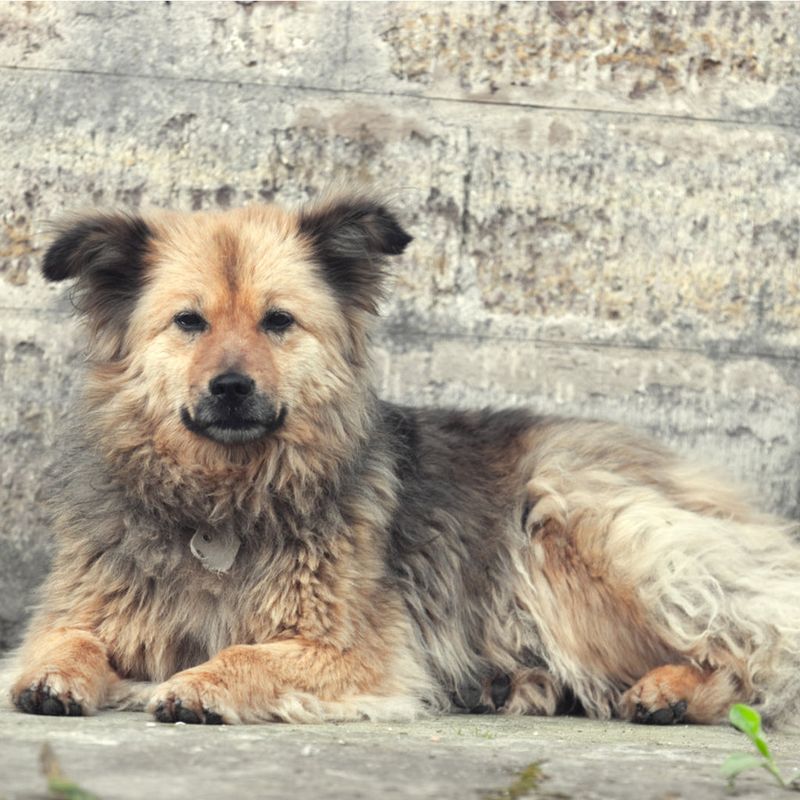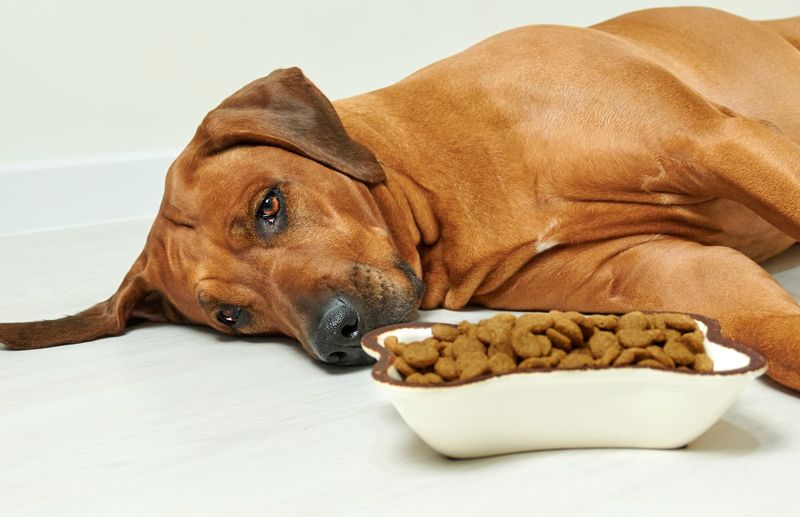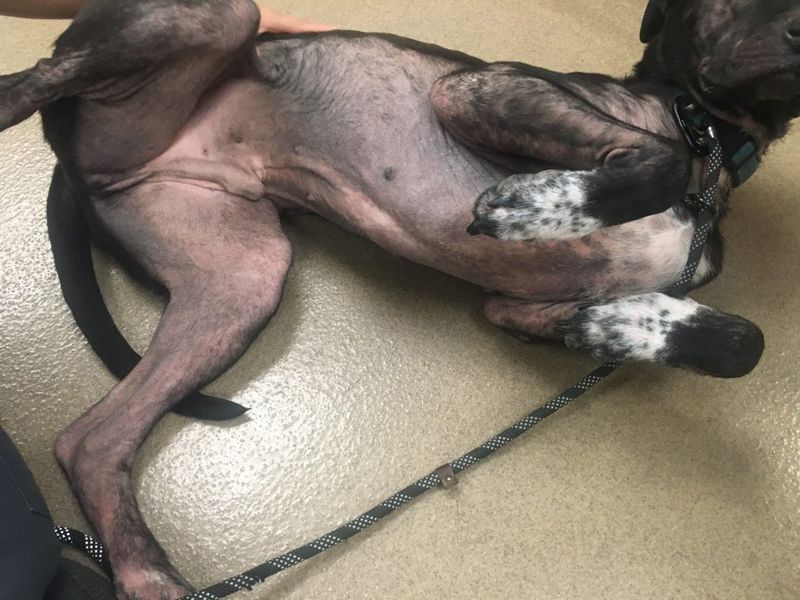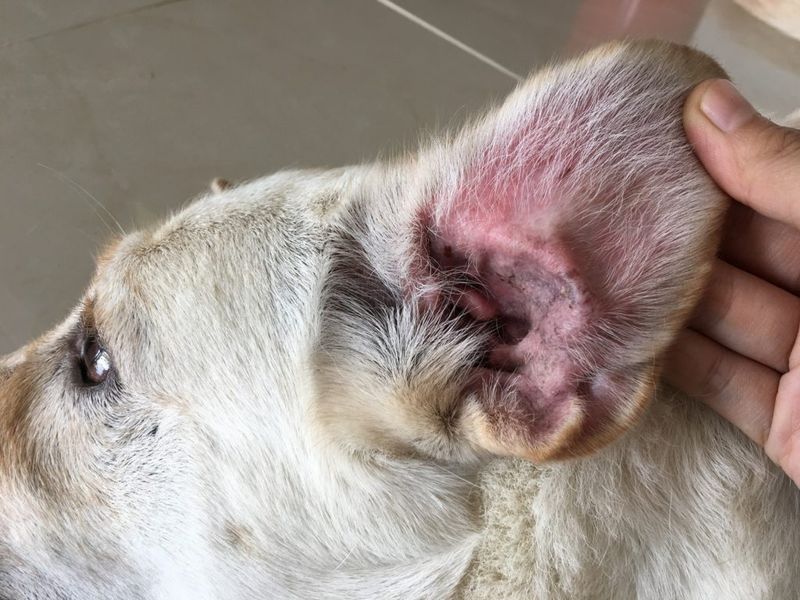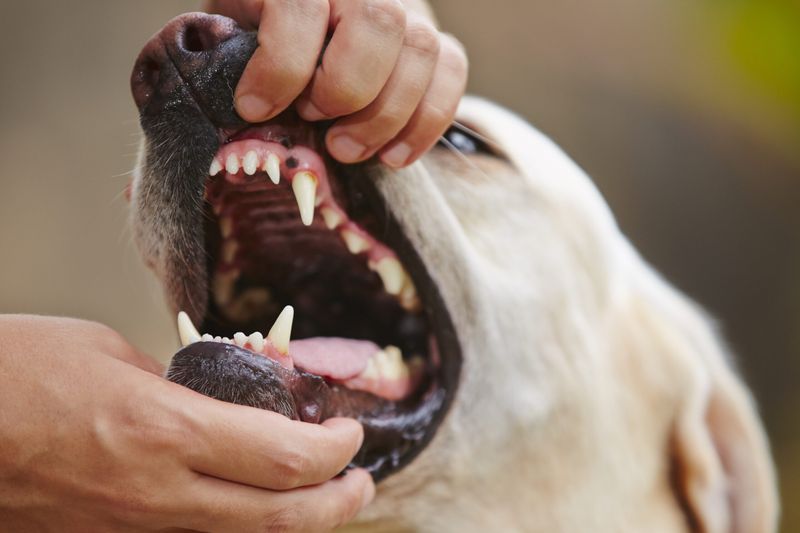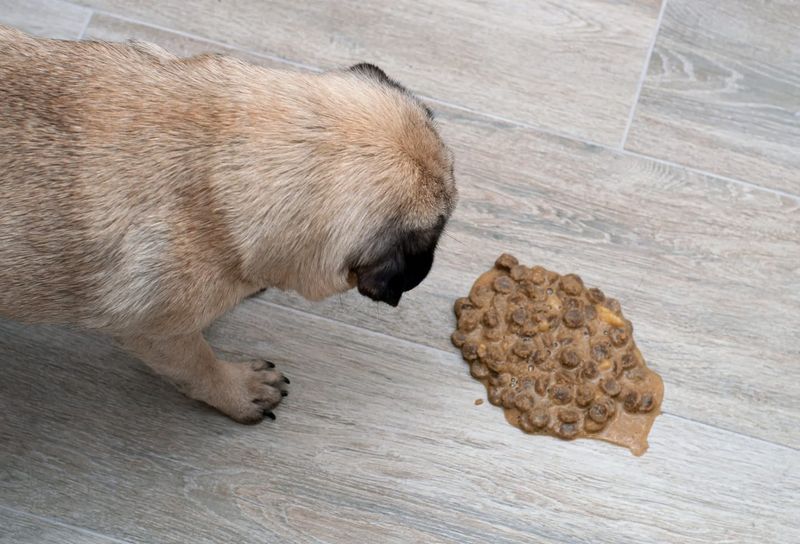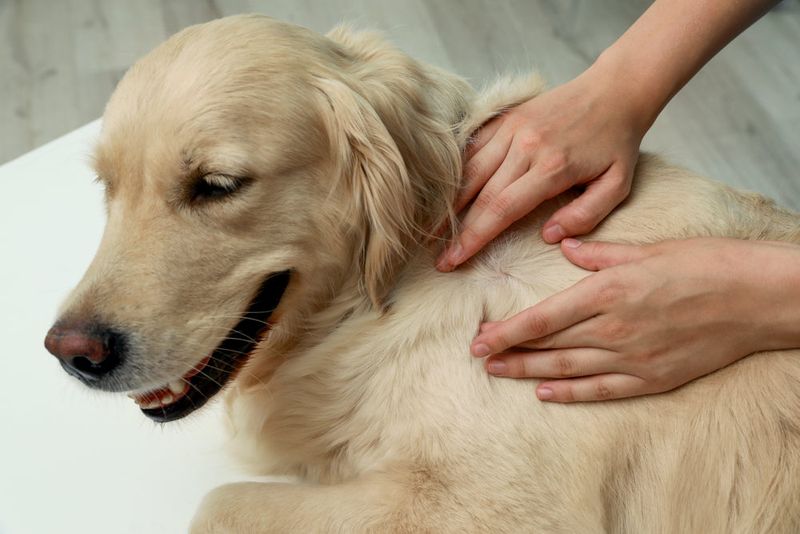Understanding your dog’s nutritional needs is crucial for their health and happiness. A dog’s diet greatly impacts their energy levels, coat shine, and overall well-being. Often, subtle signs can indicate that their current diet isn’t suitable. Recognizing these clues early can help ensure your canine companion remains in peak condition. Educating yourself on these signs can also help prevent potential health complications. Here, we explore 12 key indicators that might suggest your furry friend’s diet needs reassessment.
Dull Coat with Excess Shedding
A shiny coat is a sign of a well-fed dog. When their diet lacks essential fatty acids, it often results in a dull coat with increased shedding. Omega-3 and Omega-6 fatty acids are vital for maintaining a dog’s coat health.
Regular grooming might not solve this problem alone if their nutrition isn’t balanced. The coat reflects internal health, so if you notice more fur on the couch than usual, it could be time to reassess their diet.
A balanced intake of nutrients promotes a glossy, vibrant coat that mirrors their overall vitality.
Digestive Upsets and Frequent Gas
Have you ever noticed your pup having frequent digestive issues or an unusually gassy tummy? These can be signs that their diet is not agreeing with their stomach.
Different breeds can have varying sensitivities, and sometimes, common ingredients can be culprits. Identifying any food intolerances or allergies is crucial.
A diet adjustment, potentially with hypoallergenic food, might alleviate these symptoms, ensuring your dog’s digestive system works smoothly. It’s important to consult a vet to tailor diet changes properly.
Persistent Itchy Skin
Persistent itching can often be traced back to dietary causes. If your dog is frequently scratching or licking their skin, it might be due to allergies from certain food ingredients.
Grains, dairy, and beef are common allergens that might be causing discomfort. Adjusting their diet and opting for grain-free or limited-ingredient formulas can often provide relief.
Monitoring their reaction to new foods helps in pinpointing triggers. A diet rich in anti-inflammatory ingredients can also soothe their itchy woes.
Weight Fluctuations
Unexpected weight gain or loss in your dog can indicate nutritional imbalances. If your dog is gaining weight despite regular exercise, they might be consuming more calories than necessary.
Conversely, unexplained weight loss could point to insufficient calorie intake or malabsorption issues.
Balancing energy intake with energy expenditure is crucial. Consulting with a vet can help establish an appropriate diet plan to manage their weight effectively.
Low Energy and Fatigue
Does your dog seem less energetic during playtime? Low energy levels can sometimes be connected to inadequate nutrition. A lack of essential nutrients might make them feel sluggish or fatigued.
Dogs require a specific balance of proteins, fats, and carbohydrates to maintain their energy levels. Ensuring they get a complete and balanced diet can help boost their vitality and enthusiasm.
Regular vet check-ups can help identify any deficiencies that need addressing through dietary changes.
Frequent Ear Infections
Frequent ear infections can be indicative of dietary issues, particularly food allergies. Dogs with floppy ears, like Cocker Spaniels, are more prone to these infections.
Inflammatory foods in their diet can exacerbate ear problems. Identifying and eliminating allergens can dramatically reduce infection frequency.
A diet rich in anti-inflammatory properties might be beneficial in managing these conditions. Regular ear cleaning combined with dietary changes can enhance their ear health.
Bad Breath
Although often attributed to dental hygiene, bad breath in dogs can sometimes signal poor diet. A nutrient-deficient diet can lead to plaque buildup, affecting their breath over time.
Foods high in sugar or starch can contribute to dental problems, which in turn cause bad breath.
Improving their diet with dental-friendly foods can help maintain oral health. Regular dental check-ups and cleanings are also recommended to keep their breath fresh and delightful.
Lack of Appetite
A sudden disinterest in food might suggest that your dog isn’t enjoying their meals or that the food doesn’t agree with them. Changes in taste or appetite can indicate a need for diet adjustment.
Ensuring variety in their meals and considering flavors they love can reignite their interest in eating.
Monitoring their eating habits and consulting with a vet can help determine if a dietary switch is necessary to keep their appetite healthy.
Paw Licking
Paw licking can sometimes hint at dietary allergies. Dogs often lick their paws to alleviate itchiness caused by allergens in their food.
Identifying and removing these allergens from their diet can help soothe their discomfort. Grain and protein sources like chicken or beef are common culprits.
Switching to a limited-ingredient or hypoallergenic diet may reduce paw licking, leading to happier, healthier paws.
Frequent Vomiting
Vomiting can occur for various reasons, but frequent episodes can indicate dietary intolerance. Some dogs have sensitive stomachs and react negatively to certain ingredients.
Identifying these triggers is essential. Adjusting their diet to include easily digestible ingredients can minimize vomiting episodes.
Consulting with a veterinarian is vital for appropriate dietary changes, ensuring your dog’s stomach remains settled and content.
Hyperactivity or Restlessness
Sometimes, hyperactivity or restlessness in dogs can be related to dietary factors. A diet too high in sugar or lacking essential nutrients can lead to overactive behavior.
Balancing their diet with appropriate protein, fats, and carbohydrates can stabilize their energy levels.
Consult a veterinarian for tailored dietary advice to manage their behavior effectively, leading to a more balanced and calm demeanor.
Dry, Flaky Skin
Dry, flaky skin might indicate that a dog’s diet is lacking in omega fatty acids and other essential nutrients. Proper hydration and a balanced diet rich in oils can help maintain skin health.
Including fish oil supplements or foods rich in healthy fats can promote skin moisture.
Observing changes in their skin condition after dietary adjustments can affirm if the changes are beneficial, leading to a smoother, healthier skin texture.

